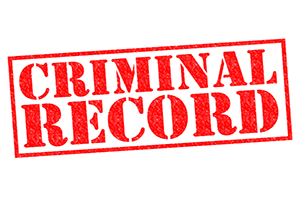
Arkansas Public Records
Public records are any government collected information that is made accessible to the general public. These records can easily be searched onlien with a first and last name.


This website offers electronic access to publicly available criminal records for the state of Arkansas. These records detail a person's criminal history and convictions within the state. These records are collected and maintained by various law enforcement agencies, criminal courts, and correctional institutions, as well as various third party resources. These publicly available records can be used a multitude of different reasons such as background checks, legal proceedings, and personal inquiries. Criminal records are comprised of arrest records, criminal charges, court records, convictions, warrants, and incarcerations. Anyone dealing with criminal justice matters in Arkansas should understand the various types of criminal records available, and the distinction between felonies and misdemeanors.
The various types of Arkansas criminal records can be broken down into several categories. Each of these offers a different aspect of the state's criminal justice system at work. Here are the main categories:
1). Arrest Records: These records document an incident where someone was taken into custody by law enforcement, and then booked, fingerprinted and mugshots taken. Arrest records do not necessarily indicate guilt, but many do lead to criminal convictions.
2). Court Records: These include documents from criminal court proceedings such as charges filed, hearings, trials, and rulings. They show the progress and outcomes of cases within the states criminal court system.
3). Conviction Records: A conviction record shows that an individual was found guilty of a criminal offense, whether by trial or plea. These lead to sentencings which can result in fines, restitution, jail and prison time.
4). Incarceration Records: These records provide information about where and for how long an someone is locked up in prison. These records also usually include details of parole or probation.
5). Active Warrants: These include bench warrants which are court orders for a person to appear in court, or arrest warrants that instruct law enforcement to arrest someone for an alleged crime.
6). Sex Offender Registry: In Arkansas, individuals convicted of sex crimes must register with the state, and this information is accessible to the public. These records show the names and locations of such offenders.
7). Juvenile Records: Although typically sealed, juvenile records involve offenses committed by individuals under 18 years of age. Access to these records is limited as they are sealed from public access.
In Arkansas, crimes are categorized primarily into felonies and misdemeanors. The difference between the two is significant in terms of severity, legal consequences, and long-term effects on a person’s criminal record.
Felonies: These are the most serious criminal offenses and typically result in major penalties, including imprisonment of more than one-year, significant fines, or even capital punishment in extreme cases. Felonies in Arkansas are divided into five different classes: Class Y (being the most severe, includes offenses like murder and rape), Class A, Class B, Class C, and Class D. Examples of felonies include aggravated assault, robbery, and drug trafficking. Felony convictions can have lasting consequences, such as the loss of voting rights, difficulty securing employment, and restrictions on owning firearms. They can also limit being able to travel outside of the country, such as Canada.
Misdemeanors: These are less serious offenses that result in much lighter penalties compared to felonies. Penalties for misdemeanor crimes can include fines, restitution, and jail time of up to one year. Misdemeanors are classified into three different categories: Class A, B, and C, with Class A being the most serious. The most common Arkansas misdemeanors include petty theft, disorderly conduct, and minor drug possession. Although misdemeanors carry less stigma than felonies, they can still affect employment prospects and other aspects of life. These will show up on a background check, or security screenings.

Arkansas makes it possible for anyone to search for criminal records through various online resources, though the level of access can depend on the type of record being sought. If you need official copies of records for a job application or other official reasons, then you will want to go through official channels, such as the state police. If you just want to verify someone's criminal past, then you can use any third party resource. Here is a breakdown of the different option you have to research someone's criminal history online:
1). Arkansas State Police: The State Police, which is a part of the Department of Public Safety, provides access to criminal background checks, including information on arrests, charges, and convictions. Employers, landlords, and other individuals conducting background checks often use this service. There is an online public access portal allows for easy access to this information for a fee.
2). State of Arkansas: The state also offers a Criminal Background Check service that can be access directly from the state's AR.gov website. This service offers official background check resources that can be used in an official capacity, the same as the State Police.
4). Court Connect: This is an online database provided by the AR Administrative Office of the Courts that allows public access to court records, including criminal cases, convictions, and sentencing records. Users can search by name, case number, or other identifiers to retrieve criminal court documents.
5). County Sheriff's Offices: For local arrests, jail records and incident reports, county sheriff's offices may offer access to recent arrest logs and jail records. Many sheriff’s offices provide online databases where the public can search for AR jail inmates, including their charges and mugshots.
6). Third Party Websites: These are also known as public record websites, and are a great resource for doing some research on a person's past. These are convenient ways to run unofficial background checks on someone for a fee. You only need a first and last name to view a person's criminal history. Some of these resources also allow you to run unlimited searches on as many people as you want for a monthly fee.
Expunging, or sealing, a criminal record allows people to remove their criminal history from public view. While the record is not destroyed, it is hidden from most public access resources and can only be viewed under specific legal circumstances, such as by law enforcement or in certain court proceedings. To start the expungement process, a petition must be filed with the court that handled their case. The court will then review the petition and consider factors like the severity of the offense, that person's criminal history, and if they have behaved since their conviction. If expungement is granted, the record will be sealed, which essentially gives that person a chance to move forward without that conviction showing up on a background check.
In Arkansas, not all offenses are qualified for expungement, such as violent crimes, sex offenses, and serious felonies may not qualify. However, if someone is convicted of less severe felonies or misdemeanors, they can apply for expungement if all the requirements of the courts are met. It's recommended to talk to a lawyer about this process as it can be quite complex in some circumstances.
Yes, every criminal conviction, including felonies, misdemeanors, DUIs and even traffic violations are visible criminal records. This means that anyone can view these online, and they will show up on a background check. Unless that criminal record is sealed or expunged, it will follow a person around indefinitely.


Public records are any government collected information that is made accessible to the general public. These records can easily be searched onlien with a first and last name.

Arrest records are details of a person's apprehension for an alleged crime by law enforcement. These records include criminal charges, booking information, and mugshots that are all searchable online with a first and last name

Background checks are a good way to find out about a person's criminal past. These reports will include someone's criminal history, court case records, arrest records, DUIs, active warrants, and incarcerations.

Arrest warrant and bench warrants are court orders that either command law enforcement to arrest someone, or someone's mandatory court appearance. These are all publicly available records via the Arkansas Public Record Laws.

Incarceration records are a detailed account of a person's criminal conviction, jail and prison records. These records are accessible through the respective correctional facility or through various third party resources.
DISCLAIMER: CriminalRecords.us aims to offer convenient, affordable, and timely access to public records generated by government entities. CriminalRecords.us is an independent service and is not connected to or endorsed by any federal, state, or local government or agency. As we are not the original source of the information provided through CriminalRecords.us, we cannot guarantee the accuracy, completeness, or currency of the information. CriminalRecords.us is not a consumer reporting agency as defined by the Fair Credit Reporting Act (FCRA), 15 USC § 1681 et seq. The information provided on this site cannot be used to determine an individual's eligibility for personal credit, employment, tenant screening, or any other purposes defined under the FCRA. Misuse of information from CriminalRecords.us for purposes such as stalking or harassment may result in civil and criminal penalties. By using CriminalRecords.us, users agree to comply with our terms of service and privacy policy, and acknowledge that they will not use the information for any purposes governed by the FCRA.